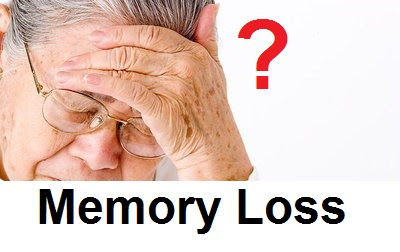Prevention of dementia can be stimulated by setting up a personal risk profile. Researchers at Maastricht UMC + and Alzheimer Center Limburg have developed a special scoring model based on different lifestyle factors, which can also provide an intervention point for intervention. "This way we can reduce the risk of dementia in a timely manner," says Dr. Stephanie Vos, chief investigator. The scientific journal Journal of Alzheimer's Disease presented the successful results, showing that prevention can be successful.
Because the score profile is based primarily on lifestyle factors, there is plenty of room to actively work there. It also makes it clear where one's risks are precise. The scoring profiles help a doctor to raise awareness of their personal risks and to provide a viable advice. "If you roll out a high score on your 55th, you can reduce the risk of dementia by, for example, stopping smoking or choosing a healthier diet," says Vos. "The score model is therefore practical and applicable. In addition, the score model can also be used to select people at high risk of dementia for, for example, research into new medications. "
To determine the effectiveness of the scoring model, an individual risk profile was determined for over 9,000 non-demented people, aged between 55 and 97 years. In the years after, it was looked up who developed dementia or not. The score model turned out to be valid. A higher score on the LIBRA index indeed resulted in more cases of dementia, with the exception of the group of participants over 80 years old. This means that based on the score model, one can predict who older is more likely to get dementia. Lower scores led to lower risk of dementia and better brain health.
Dementia is a rapidly growing health problem worldwide. Healing is not possible yet, which makes the need for prevention the greater. What are the causes of dementia?, different factors that are mainly related to lifestyle affect the dementia risk. For example, increase cholesterol, overweight, smoking and high blood pressure. Maastricht researchers have developed a model that enables one individual risk profile to be drawn up on the basis of twelve of these factors: the Lifestyle for Brain Health (LIBRA) index. This proves to be effective on the basis of a large European population survey.
Prevention Of Dementia
Because the score profile is based primarily on lifestyle factors, there is plenty of room to actively work there. It also makes it clear where one's risks are precise. The scoring profiles help a doctor to raise awareness of their personal risks and to provide a viable advice. "If you roll out a high score on your 55th, you can reduce the risk of dementia by, for example, stopping smoking or choosing a healthier diet," says Vos. "The score model is therefore practical and applicable. In addition, the score model can also be used to select people at high risk of dementia for, for example, research into new medications. "
Dementia In Older Adults
To determine the effectiveness of the scoring model, an individual risk profile was determined for over 9,000 non-demented people, aged between 55 and 97 years. In the years after, it was looked up who developed dementia or not. The score model turned out to be valid. A higher score on the LIBRA index indeed resulted in more cases of dementia, with the exception of the group of participants over 80 years old. This means that based on the score model, one can predict who older is more likely to get dementia. Lower scores led to lower risk of dementia and better brain health.
Factors Of Dementia
Dementia is a rapidly growing health problem worldwide. Healing is not possible yet, which makes the need for prevention the greater. What are the causes of dementia?, different factors that are mainly related to lifestyle affect the dementia risk. For example, increase cholesterol, overweight, smoking and high blood pressure. Maastricht researchers have developed a model that enables one individual risk profile to be drawn up on the basis of twelve of these factors: the Lifestyle for Brain Health (LIBRA) index. This proves to be effective on the basis of a large European population survey.

